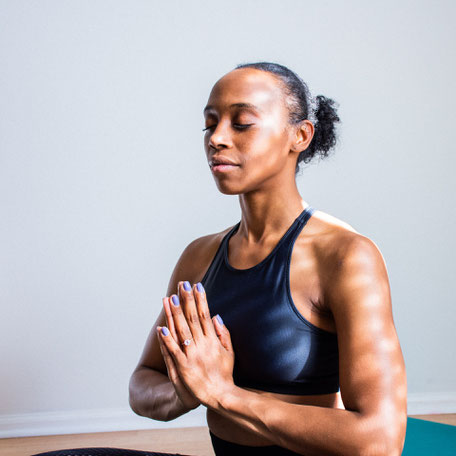Mindfulness can be described in a multitude of ways, and they all have to do with directing your attention on what is in this present moment, what you can experience here and now. And it might be one of the most natural things to do, even though most people have unconsciously trained themselves to not be able to do it anymore. Okay, let us try mindfulness; just be where you are right now and I want you to feel how it feels to breathe. What can you sense when you breathe in, what is the sensation as you are breathing out, can you feel the temperature of the air?
That is mindfulness, (if you did the experiment) what you did was directing your attention, your focus, on the sensation of breathing. What you did was mindfulness. Now there are more things to say about mindfulness than that, but the basis of it is just that, directing your focus, your attention.
If you feel like it, why not try some more mindfulness? Again, focus on your breath, how does it feel right now to breathe? How much of that experience can you allow yourself to experience?

Is mindfulness right for you?
There are a multitude of benefits to be practicing mindfulness, something that the Buddhist practitioners have known for centuries, science is catching up and have confirmed and also discovered new benefits of doing mindfulness:
- One's general mood will start to change, one will become more happy
- Will experience an increased quality of life
- It reduces stress-levels
- It strengthens both the ability to learn and one's memory
- Improved emotional regulation
- Improved ability for compassion and empathy
- Reduces symptoms associated with: Depression, Anxiety, Pain, Sleep problems and more
- It even has an impact on how the neurons of the brain connect to one another, especially in regions that process sensations, emotions, thoughts. A change in the neuronal structure is also what help these effect become long lasting.
- And many, many more things


While reading the scientific rapports on effects of mindfulness it is almost staggering, you find yourself wondering "why is not everyone doing this?". If you would like to experience some of these effects for yourself, you need only start practicing mindfulness.
Caveat: most of the results that are more noticeable have primarily been measured after a period of a few weeks, often 8 weeks, so one might have to continue the practice for a while in order to notice the results. Also, there can be no grantee that everyone will experience these results, still the science is quite positive.
If you want to check out more information concerning the effect of mindfulness you can always read up on it in sources like: 1177, UMass mindfulness, mindful - the science, books, or similar.
If you want to learn more on how to practice mindfulness, then, read on.

Mindfulness, I declare, is useful everywhere.
- Buddha
So, what is mindfulness?
To describe mindfulness in words means that we lose a part of what it actually is, we can try though:
Mindfulness is the awareness that arises through purposefully paying attention in the present moment, and doing so without any judgements.
or
Mindfulness is to be aware of the present moment, without valuing or judging what you experience. Mindfulness is about experiencing things as they are. Mindfulness replaces denial and distortions with the clarity in acceptance, which leads to wisdom, better choices, and a more joyful experience of life.
or
Mindfulness is a mental state achieved by focusing one's awareness on the present moment, while calmly acknowledging and accepting one's thoughts, feelings, and bodily sensations.

Good, does that clear it up? From what you can read in these definitions' mindfulness has to do with a few things:
- Focus / Attention that is controlled actively
- You focus on what you experience here and now, that is, what do you think, what do you feel, what can you sense.
- When doing so you want to avoid judging what you experience, you want to accept whatever you think, feel, and sense.
The practice
Practicing mindfulness is just that, a practice. It is sort of like developing a skill. If you have not been practicing mindfulness you are not going to be able to direct your attention, your focus, for very long. What will usually happen is that you start focusing (on for example your breath), then after a few seconds (like 4 seconds) your mind will begin to wander and you will have lost your focus. That is what happens to 99% of all people.
The important thing to know is that mindfulness is a PRACTICE, so we are going to practice.

So what mindfulness is about is actually being in this process where you are focused, then loose focus, then you suddenly notice that you have lost focus, so you refocus your attention and then you are focused again. A process that is repeated again and again.
It is almost like training your muscles in the gym, in order for them to get stronger you have to exercise them. It is the same with your attention, in order for it to become stronger you have to practice with it, through the practice of mindfulness.
(Side note, you are actually strengthening both your attention and your meta-attention.)
However, mindfulness is not only about directing your attention, it is more than just attention training. There is also the part about not judging what you experience, and it can also be helpful to be curious about what you actually experience and how you react. For this it can be better so say that mindfulness is built on three founding cornerstones:
- Intention
- Attention
- Attitude
With insight into these three you are able to do the mindfulness practice in an even more rewarding way. Let us look at these components.

Intention
Everything starts with intention. Start by creating an intention for why you want to do mindfulness. Perhaps it is to reduce stress, to feel better, to be more present, or something else.
The important thing is to remind yourself of this intention both before and after each mindfulness meditation, in order to help establish your view on mindfulness practice as a whole.
Attention
When you are doing mindfulness you choose what to focus upon, what to direct your attention towards. You attend to your moment-to-moment experience, which can be directed towards both internal and external experiences.
What is going to happen is that you are, at some point, going to lose your attention. When you notice this, you redirect your attention to the thing you want to focus on.
Attitude
How are you doing mindfulness? What is your attitude towards yourself? It is easy for people to think things that are less nice to themselves, in mindfulness we want to shift our attitude towards one of self-directed kindness and curiosity.
When you notice that you have lost your attention it is then that your attitude becomes extra important. How do you face that experience? With kindness or with judgement?
Now you are ready
So now you are ready to start doing mindfulness, you can start right now, exactly where you are. Or if you want to practice together with people you are most welcome to one of our events, where we practice mindfulness in Lund. It is often easier to start doing mindfulness when you have other people that can support you. Wherever your journey takes you, good luck!
I wanted to know more about meditation as well...
Oh, right, meditation. Meditation is a word that can mean something quite similar to mindfulness, meditation is a practice in which you aim to be concussions. That is, you want to be aware of the present moment, what you can experience right now. Sound familiar? Most often though meditation is said in order to describe the actual practice that you are doing, "you sit and meditate" can be translated into "you sit and focus on your experience". That you are dedicating some time to practice.
Though, meditation can be more than that. There are a multitude of different kinds of meditations that can focus on different aspects of our experiences, so in order to distinguish between different kinds of meditations it is often good to be specific. That means that we often say that "we are going to do a mindfulness meditation" in order to be clear that we are going to do a type of meditation that is focused on mindfulness. Hope that clears it up.
Want to try a meditation?
The types of meditations that we are doing in Wake Up Lund are all focused on mindfulness. Though, you can do that in a multitude of ways. So, in order to distinguish these meditations from one another they all have different names. For example movement meditation, eating meditation and silent meditation. Notice though that we might sometimes exclude the word "mindfulness" from the names of the meditations even though it is a mindfulness meditation, might we be a bit lazy for omitting it, maybe. You can find some of the meditations that we do under the meditations tab, but the best way to try them out is of course to join us here in Lund for some mindfulness meditation.



